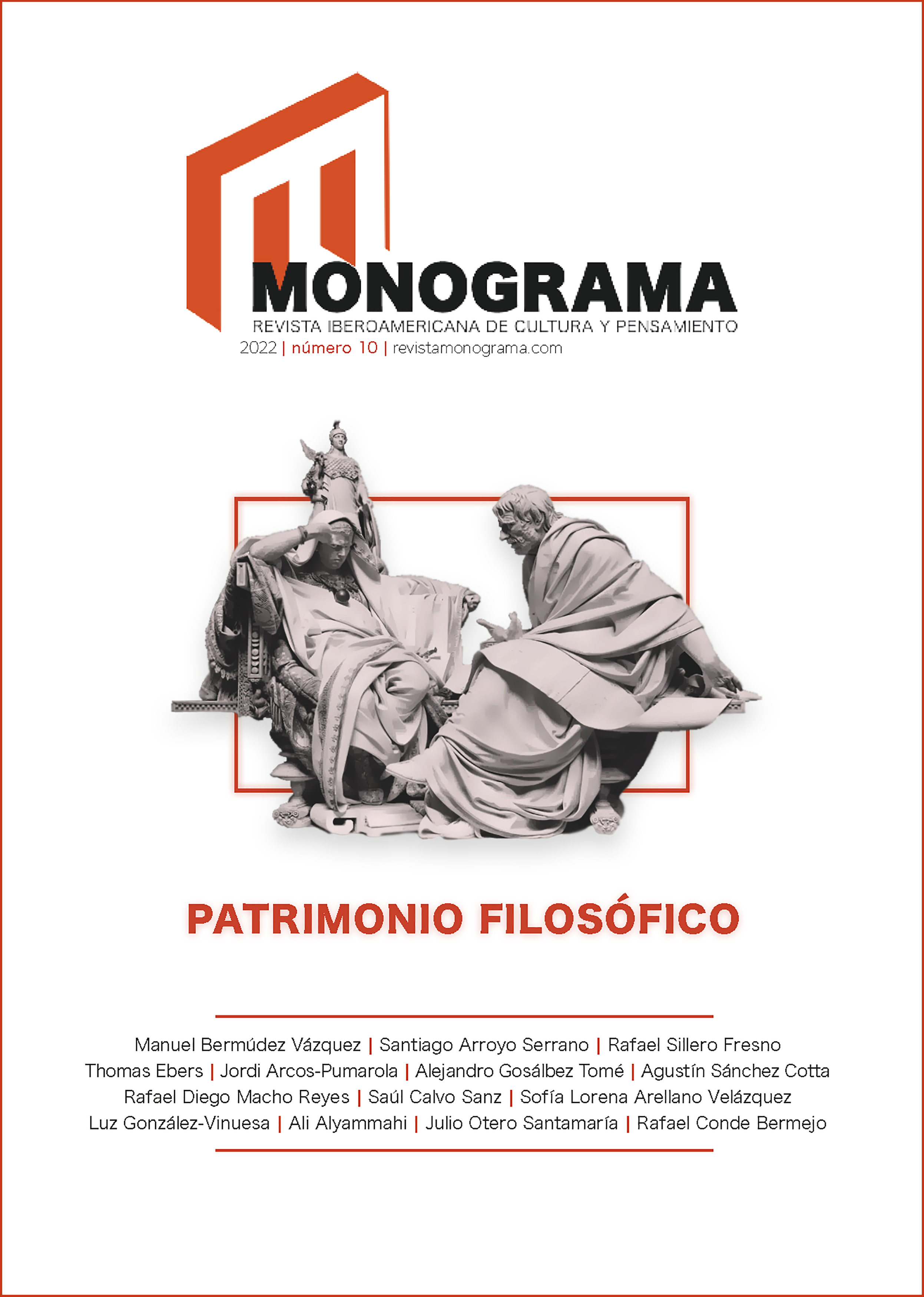The Intangible Philosophical Heritage of Averroes’s Work
DOI:
https://doi.org/10.36008/monograma.2022.10.0333Keywords:
immaterial heritage, philosophical heritage, Averroes, axiology, cultural tourismAbstract
VIDEO: Philosophy as Intangible Heritage and the Case of Averroes
Philosophy is non-material humanity heritage due to being relevance on its totality and interdependent to material heritage: their works and places of thinking. Philosophical authors could be heritage elements of a specific culture if they respond to an appreciative set of values. This work applies the axiology of Pumarola (2016), the historical, manufacture and singular values extended with the value of the classic; to determine the heritage elements of the Averroes’s thought, which then would be: the Neoplatonism as historical frame of thought, his life and relationship with philosophy, his main philosophical themes (the double path to truth, the eternity of existence, and the intellect of mankind) following the guidance of Guerrero Román (1985) and Martínez Lorca (2015) on this; finally, the survival and relevancy since his passing till our days. The paper sums the importance of this research on extending the philosophical praxis to new social places, and a reflection upon the role of philosophy in culture.
Downloads
References
Arcos-Pumarola, J. (2016). «Turismo cultural y patrimonio filosófico: Un estado de la cuestión». International Journal of Scientific Management and Tourism, 2(3), pp. 41-62.s
Averroes (2008). Tahafut al Tahafut (traducción de S. V. D. Bergh).
Ballart, J. y Tresserras, J. J. (2001). Gestión del patrimonio cultural. Barcelona: Ariel.
Blackburn, S. (2008). «Neoplatonism». The Oxford Dictionary of Philosophy. Oxford University Press. Disponible en: https://www.oxfordreference.com/view/10.1093/acref/9780199541430.001.0001/acref-9780199541430.
Carpio, A. P. (2000). Principios de filosofía: Una introducción a su problemática. Buenos Aires: Glauco.
Guerrero, R. R. y Nogales, S. G. (1985). El pensamiento filosófico árabe. Madrid: Cincel.
Harari, Y. N. (2016). Homo deus: Breve historia del mañana. Madrid: Debate.
Heisig, J. W. (2015). Filósofos de la nada. Barcelona: Herder Editorial.
Leftwich, A. (2004). What is Politics?: The Activity and its Study. Cambridge: Polity Press.
Lorca, A. M. (2015). Averroes, el sabio cordobés que iluminó Europa. Córdoba: Utopía Libros.
Nogales, S. G. y Lorca, A. M. (1987). La Psicología de Averroes. Comentario Al Libro Sobre el Alma de Aristóteles. Madrid: UNED.
Rivero, M. R. (2015, abril 11). «Lo que convierte un clásico en clásico». El País. Disponible en: https://elpais.com/cultura/2015/04/08/babelia/1428501186_478970.html.
Sloterdijk, P. (2000). Normas para el parque humano: Una respuesta a la «Carta sobre el humanismo» de Heidegger. Madrid: Siruela.
Uccella, F. R. (2013). Manual de patrimonio literario: Espacios, casas-museo y rutas. Gijón: Trea.
Unesco (1972). Convención sobre la protección del patrimonio mundial, cultural y natural.
Unesco (2003). Convención para la Salvaguardia del Patrimonio Cultural Inmaterial.
Downloads
Published
How to Cite
Issue
Section
License
Copyright (c) 2022 Monograma. Revista Iberoamericana de Cultura y Pensamiento

This work is licensed under a Creative Commons Attribution-NonCommercial-NoDerivatives 4.0 International License.
Esta obra está bajo una licencia de Creative Commons Reconocimiento-NoComercial-SinObraDerivada 4.0 Internacional






